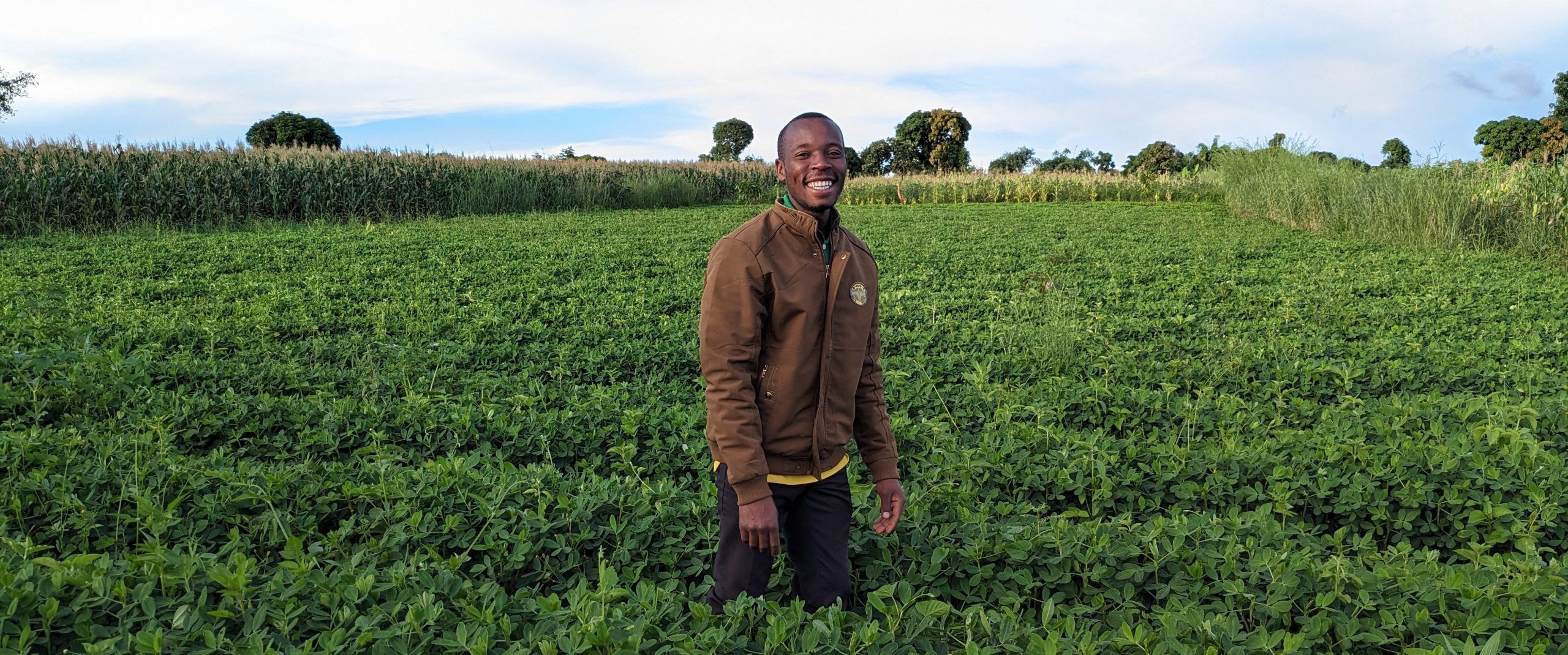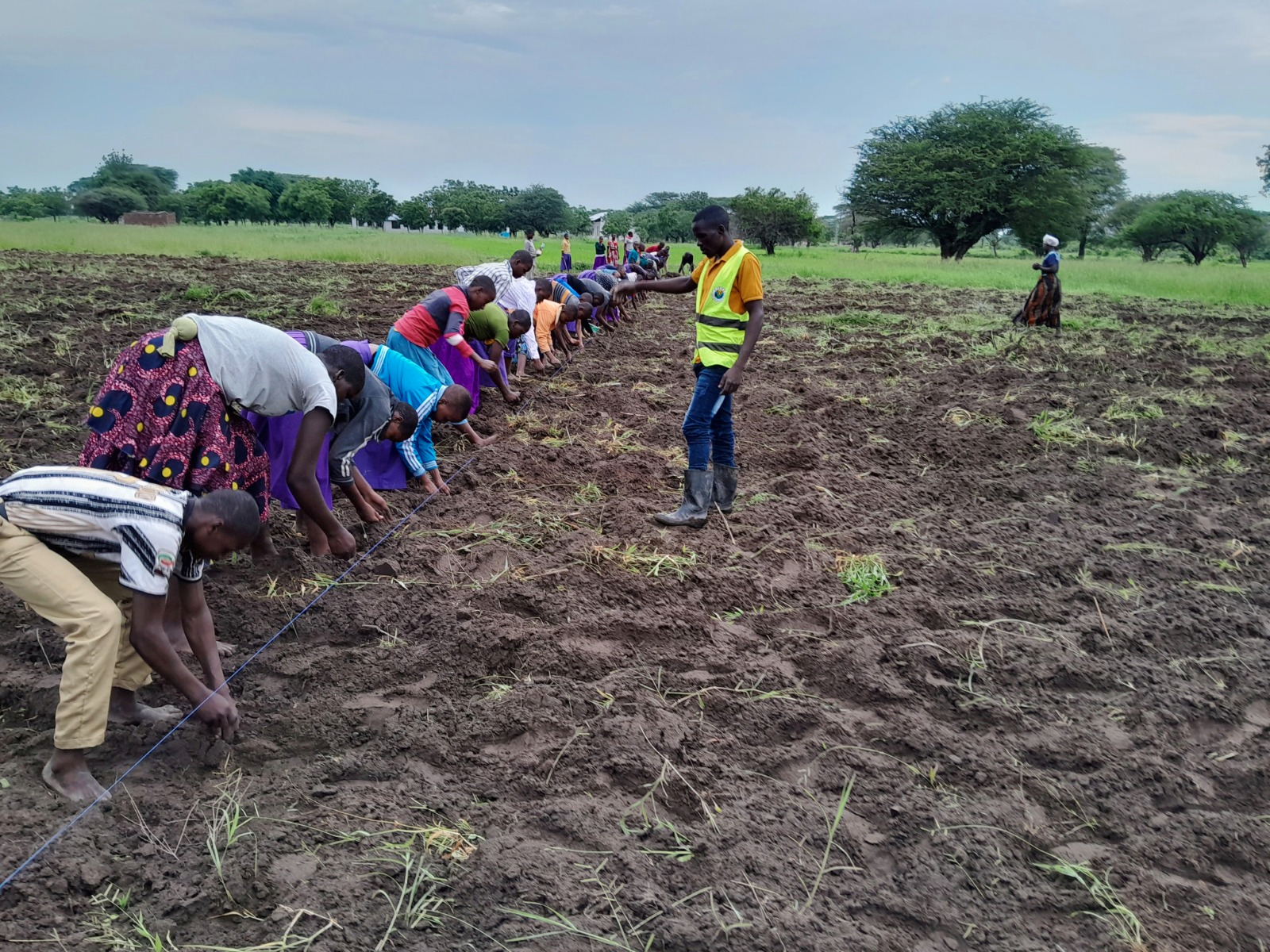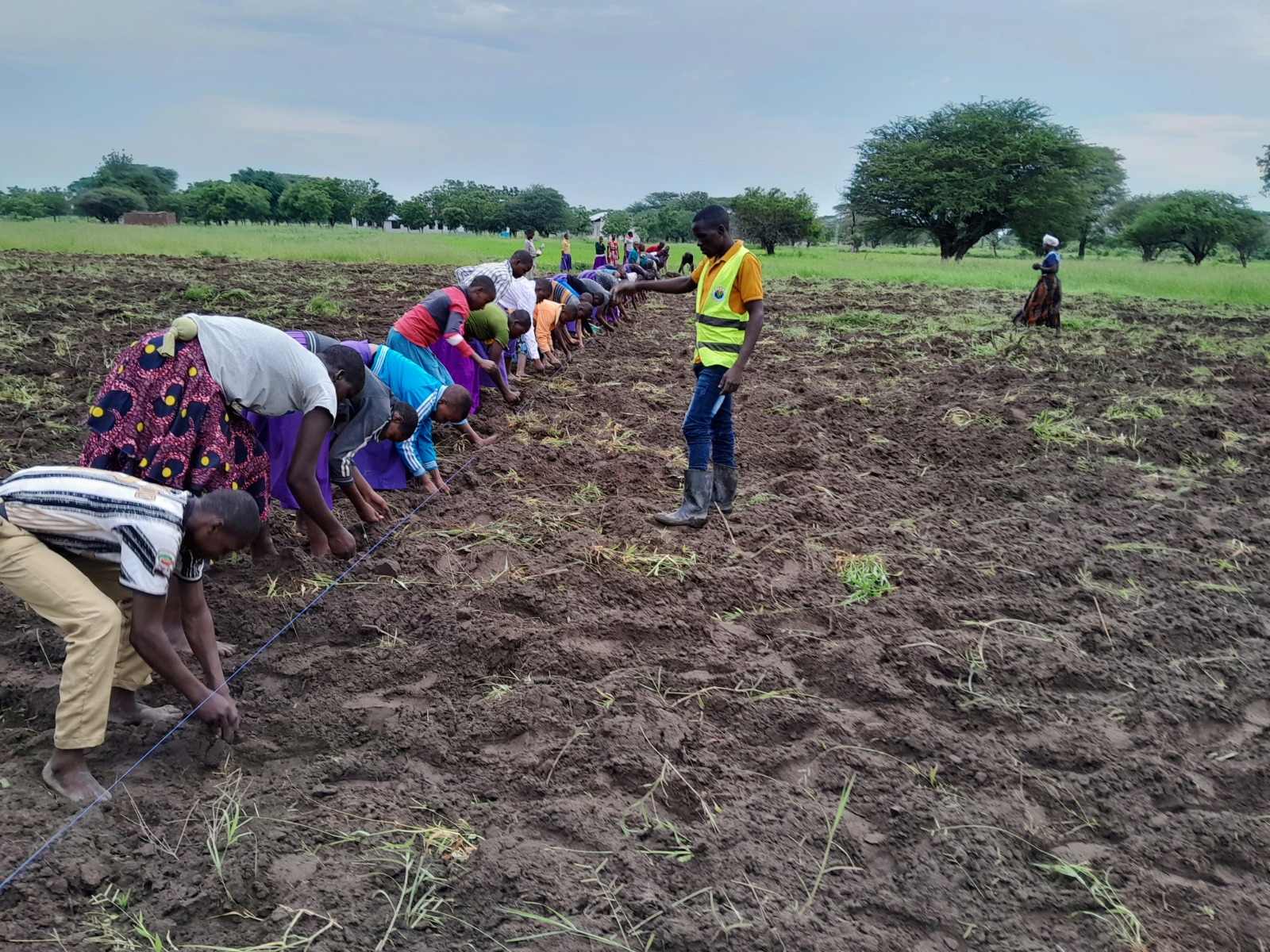Specialist centers empower women and youth farmers
Joseph Gambi began as a groundnut seed producer in Ukwile village, Mbozi District, Songwe, Tanzania. He struggled to make a living from agriculture, an experience shared by many young people and women in his village. Low yields, limited opportunities in agricultural value chains, and low productivity in current production systems meant that there were fewer opportunities for income generation, which all negatively impacted the involvement of youth and women.
Based on his experience as a young farmer, Joseph believed groundnut farming could be more profitable than maize. “Although groundnut farming is promising and earns good money, its productivity is very low. Most of us opt for maize because quality seeds and other inputs are available, despite its high capital needs,” said Joseph.
To improve the situation, CIMMYT’s Dryland Crops Program aims to increase the adoption of quality seeds among youth and women farmers through behavior change interventions. Led by CIMMYT and implemented in partnership with the Center for Behaviour Change and Communication (CBCC) and the Tanzania Agricultural Research Institute (TARI), the project targets sorghum and groundnut improvement in Tanzania’s Songwe region.
Joseph was selected by his community to lead the way in changing perceptions of groundnut in his village and trained as a last-mile change agent, equipped with knowledge on social behavior change. As a youth champion and seed producer in Ukwile village, he has created awareness about quality seeds and good farming practices among at least 600 farmers across more than 15 villages in the district.
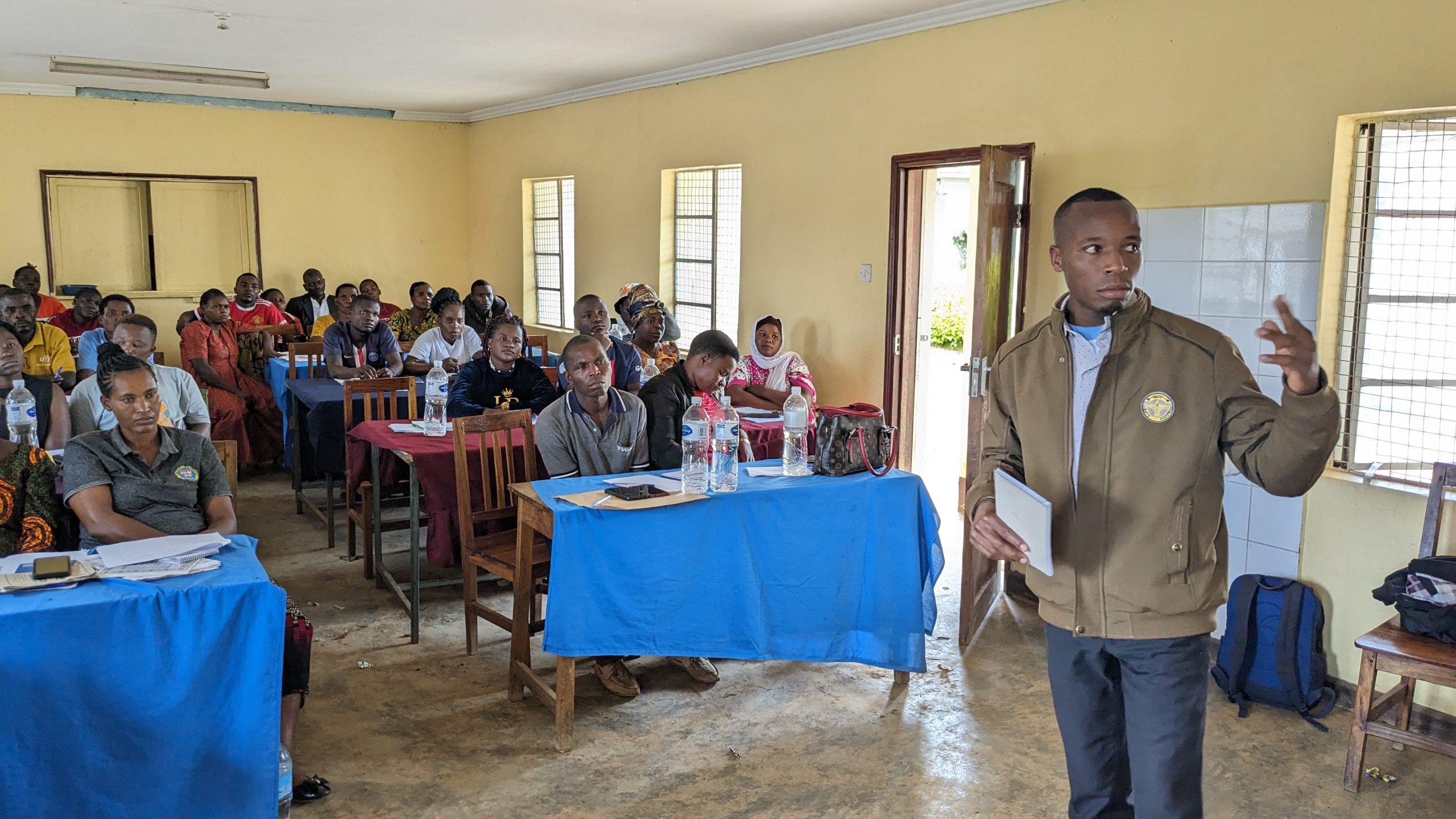
Seed demand creation
Through the Drylands Crop Program, Joseph has been trained in various awareness and demand creation strategies, such as farmer mobilization. He uses these skills to raise farmers’ interest in different technologies and products, creating demand for various agricultural inputs and seeking out suppliers.
His efforts have attracted a variety of stakeholders to his village. These include four TARI centers, five seed companies, three non-government organizations (NGOs), one agrodealer, and two off-takers. While most stakeholders partner with him to demonstrate and promote their technologies to the farmers he has mobilized, others enter into agreements and pay him a commission for each sale he facilitates.
In the first season, Joseph created demand for more than two tons of groundnut seed, partnering with Pavig Agro, a groundnut seed company, to distribute almost 1.2 tons of quality seed to farmers in his village. The seed company could not adequately meet the aggregated demand, creating an opportunity for Joseph and 17 others to train as Quality Declared Seeds (QDS) producers.
Dedicated support for youth and women
After creating traction for quality seeds, inputs, and other agricultural services, the project established the Youth and Women Quality Center (YWQC) in Ukwile, managed by Joseph and three other community champions. The center serves more than 1,000 farmers across five villages and currently hosts more than ten demonstration plots featuring nine varieties of groundnut, maize, five bean varieties, and sorghum.
Furthermore, the center is now registered and licensed to distribute seeds and offers services such as seed planting using a manually operated seed planter, pesticide and herbicide spraying, extension support, market information, farmers’ advisory services, input demand creation and distribution, and produce aggregation.
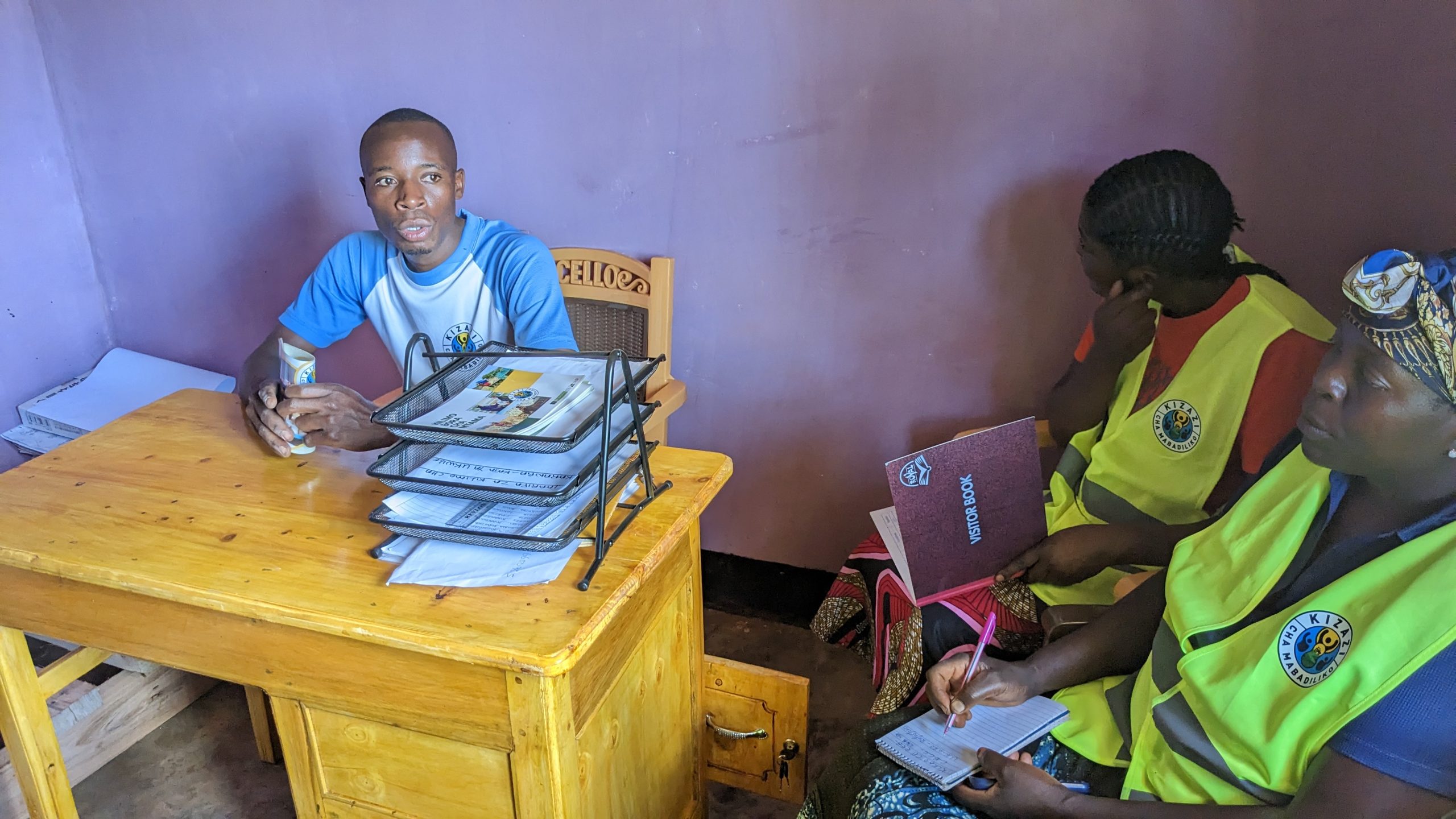
The project has proved to be transformational for Joseph, who has now received certification as a seed producer and dealer, as well as for his family and wider community. Before the training, Joseph allocated half an acre for groundnut production each season; he now uses three acres, with an additional acre for sorghum seed and a further half acre for bean seed production.
He has also mobilized and supported the registration of ten farmer groups, three of which were trained as seed producers and now produce groundnut seed and mentored five youths and women to become seed producers. This work means that the Ukwile YWQC now has 12 seed producers cultivating 13.5 acres of groundnut seed. Joseph and other experienced seed producers multiply basic seed to produce QDS 1, which is then sold to other seed producers at affordable prices.
Thanks to Joseph’s awareness and demand creation initiatives, Ukwile YWQC generated US $4,000 in revenue from seed and input distribution between November 2022 and January 2024. From two acres alone of groundnut seed production, Joseph earned US $1,456 from selling groundnut QDS between December 2023 and January 2024.
His increased income has supported his family, including paying for education for his four children, and has purchased a plot of land, on which he is constructing a three-bedroom house.
Cover photo: Joseph at his groundnut seed farm (Naliendele variety) in Ukwile Village, Songwe. (Photo: CBCC)
